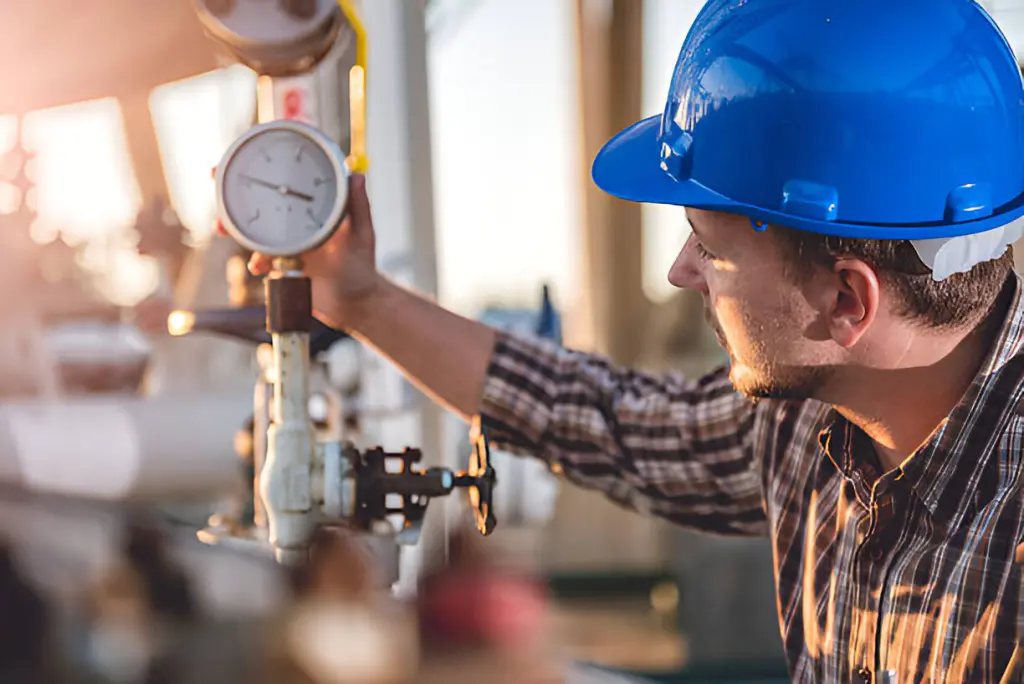In discussing the distinctions between CP12 and the Landlord Gas Safety Certificate, it is crucial to recognize not only their terminological differences but also the practical implications these distinctions have for landlords. CP12 often serves as a shorthand for the certificate itself, which is a subset of the broader requirements encompassed under the Landlord Gas Safety Certificate. Understanding these nuances is vital for compliance and ensuring tenant safety. Moreover, the legal ramifications of neglecting these responsibilities can be severe, with substantial penalties for non-compliance. To grasp the full extent of these obligations and their potential impact, a closer look at each document’s specific requirements and legal standing is indispensable.
Understanding CP12
Understanding CP12, commonly referred to as the Gas Safety Certificate, is essential for landlords and property managers. The CP12 certificate serves as a critical validation that the gas installations and appliances within a property comply with safety standards, thereby mitigating potential hazards.
The significance of CP12 extends beyond mere compliance; it plays a pivotal role in ensuring the safety of tenants and protecting landlords from legal repercussions.

The validity of the CP12 certificate is precisely regulated. It must be renewed annually, requiring a thorough inspection by a Gas Safe registered engineer. During this inspection, each gas appliance and flue is examined for safe operation, and the ventilation provisions are checked to ensure they meet legal requirements. The results are then documented, providing a transparent record of safety checks performed and any faults identified.
Landlords must maintain an up-to-date CP12 certificate to legally rent out their property. Failure to possess a valid certificate can result in substantial fines and invalidate property insurance, highlighting the importance of understanding and adhering to CP12 requirements.
This understanding ensures compliance with safety regulations and fosters a secure living environment.
Overview of Landlord Gas Safety Certificate
The Landlord Gas Safety Certificate, also known as CP12, is a mandatory document that certifies all gas appliances, pipes, and flues in a rented property have been inspected and deemed safe to use. This certificate underscores the importance of safety in residential tenancies, ensuring that all gas installations comply with stringent safety standards.
It is incumbent upon landlords to arrange for an annual gas safety check by a qualified engineer who is registered with the Gas Safe Register, the official gas registration body in the United Kingdom.
The issuance of a CP12 certificate is not merely a regulatory formality but a crucial measure to prevent gas-related incidents, which can lead to severe health risks or fatalities. The document serves as a record of the inspection and includes details such as the date of the check, the address of the property, the name and registration number of the engineer, and the findings of the inspection.
Tenant responsibilities also feature prominently in maintaining safety standards. While landlords must ensure the integrity of gas installations, tenants are responsible for reporting any faults or discrepancies in the gas appliances and systems.
This collaborative approach is vital in safeguarding occupants and maintaining compliant and safe living conditions.
Historical Context and Evolution
Over time, the regulations governing gas safety in rental properties have undergone significant changes, reflecting advancements in technology and an increased awareness of safety concerns. Historically, the introduction of gas safety laws marked a pivotal shift in landlord responsibilities and tenant rights, underscoring the historical significance of regulatory changes in this domain.
Initially, gas safety regulations were sparse and mostly reactive, instituted primarily after incidents demonstrated clear risks. However, as the utilization of gas in residential properties increased, so did the complexity and stringency of the laws governing its use.
The evolution of these regulations can be traced back to the increased prevalence of gas appliances in homes, which necessitated more robust frameworks to ensure safety and prevent accidents.
Technological advancements have also played a critical role, enabling more precise and efficient checks. Modern detection and diagnostic tools have allowed for more thorough inspections, leading to regulations that are not only preventive but also proactive.
This evolution reflects a broader regulatory trend toward prioritizing preventative measures over merely reactive responses, ensuring continuous improvement in gas safety standards within the rental sector.
Legal Requirements for Landlords
Landlords must adhere to specific legal obligations to ensure the gas safety of their rental properties. These regulations are designed to protect tenants and maintain high gas safety standards, essential for preventing gas-related incidents. Compliance not only mitigates risks but also legally shields the landlord from potential liabilities.
Key aspects of these legal requirements include:
- Annual Gas Safety Checks: Landlords are required to conduct annual inspections on all gas appliances and flues to ensure they are operating safely and efficiently.
- Maintenance of Gas Equipment: Regular maintenance must be performed on gas pipes, appliances, and flues to prevent malfunctions and leaks.
- Record Keeping: Landlords must keep records of all safety checks and maintenance for at least two years and provide copies to existing tenants within 28 days of the inspection.
- Installation by Qualified Professionals: Any new gas appliances or systems must be installed by engineers registered with a legally recognized Gas Safe Register.
Failure to comply with these obligations can lead to substantial fines or even imprisonment. Landlords must be vigilant in upholding these standards, not only to comply with the law but to ensure the safety and well-being of their tenants.
Tenant responsibilities also include reporting any gas safety concerns to the landlord promptly and facilitating timely interventions.
Inspection Process Detailed
Understanding the detailed steps involved in the inspection process is fundamental for landlords to ensure compliance with gas safety regulations. This process, critical for both CP12 and the Landlord Gas Safety Certificate, begins with a comprehensive inspection checklist that focuses on the safety and functionality of all gas installations and appliances within a property.

The inspection starts with a visual examination to identify any obvious signs of damage or wear that could affect the safe operation of gas appliances. This is followed by a series of tests to check the integrity of gas connections, pressure levels, and the correct function of safety devices. Each appliance is tested individually to ensure that it is operating efficiently and safely, adhering strictly to manufacturer guidelines and industry standards.
Furthermore, the inspection process includes a thorough review of gas appliance maintenance records. This ensures that all appliances have been regularly serviced and maintained according to the prescribed schedules and that any previously identified issues have been addressed.
The results from these assessments are meticulously documented, providing a clear record of appliance health and compliance status, which is pivotal for both legal adherence and tenant safety.
This meticulous approach ensures that all legal requirements are met, safeguarding both landlord and tenant.
Key Components of the Certificates
Delving into the specific elements of CP12 and the Landlord Gas Safety Certificate reveals several key components that are essential for compliance. Both certificates must document the results of the safety inspection, including the condition of the appliances, pipework, and flues. This ensures that all gas installations meet the necessary safety standards.
Key components common to both certificates include:
- Inspector Details: Name, signature, and registration number of the gas safe engineer who conducted the inspection.
- Property Information: Full address of the property where the inspection was performed.
- Appliance Details: List of all gas appliances and installations checked, including their make, model, and location.
- Safety Findings: Specific results for each appliance and installation, detailing any defects found and recommendations for remedial actions.
Certificate validity and inspection frequency are critical aspects. The certificates generally hold validity for one year, requiring annual renewal through subsequent inspections.
This frequency ensures that all gas installations are consistently maintained and that any potential hazards are addressed promptly, safeguarding tenants and property alike. The precision of these components is crucial for ensuring the safety and compliance of residential properties.
Common Misconceptions Clarified
Addressing common misconceptions about CP12 and Landlord Gas Safety Certificates is essential for property owners and tenants alike. A prevalent myth suggests that both certificates are interchangeable terms for the same document. However, the CP12 is specifically the certificate issued after a gas safety check, which complies with the UK Gas Safety Regulations.
The Landlord Gas Safety Certificate, on the other hand, is a broader term that can encompass the CP12 among other safety documentation related to gas appliances and installations.
Another confusion lies in the assumption that once obtained, these certificates cover all gas-related safety concerns indefinitely. This is fundamentally incorrect; both certificates have a validity period, typically for 12 months, necessitating regular reviews and renewals to maintain compliance.
Myth debunking around the certificate’s importance cannot be overstressed. Some might underestimate the legal implications of these certificates. They are not merely formalities but are critical for ensuring the safety of tenants and meeting legal obligations.
Non-compliance can result in severe penalties, including substantial fines and restrictions on property rental.
Understanding these distinctions and the true significance of each certificate empowers stakeholders to better manage their responsibilities and ensures the safety and legality of their property maintenance practices.
Renewal and Compliance Tips
With the understanding established that CP12 and Landlord Gas Safety Certificates are subject to annual renewal, property owners and landlords must adopt proactive strategies to ensure compliance with gas safety regulations.
Managing renewal frequency and adhering to a stringent compliance checklist are fundamental to safeguarding tenants and properties alike.
To streamline the renewal process and maintain compliance, consider the following tips:
- Schedule Early: Arrange for inspections well before the certificate’s expiration date to avoid lapses in compliance.
- Use Reminders: Implement a reminder system to alert you two months prior to the due date, ensuring enough time to address potential scheduling conflicts.
- Maintain Records: Keep detailed records of all gas safety checks and repairs. This documentation is crucial not only for legal compliance but also for reference in future inspections.
- Select Qualified Professionals: Only hire engineers who are Gas Safe registered to conduct inspections and repairs, thereby guaranteeing the quality and legality of the work performed.
Differences and Similarities Summarized
Understanding the distinctions and commonalities between CP12 certificates and Landlord Gas Safety Certificates is essential for landlords and property managers. Despite their similar purposes in ensuring gas safety and compliance, the terms CP12 and Landlord Gas Safety Certificate often cause confusion. Here, the CP12 significance and the certificate validity are particularly crucial.
| Feature | CP12 Certificate | Landlord Gas Safety Certificate |
|---|---|---|
| Terminology | Commonly referred to as CP12 | Officially named |
| Purpose | Ensure gas safety in rented homes | Ensure gas safety in rented homes |
| Validity Period | 12 months | 12 months |
Conclusion
In conclusion, distinguishing between CP12 and the Landlord Gas Safety Certificate is crucial for ensuring legal compliance and tenant safety in rented properties. While both documents serve similar purposes in verifying the safety of gas installations and appliances, understanding their specific requirements, processes, and terminologies is essential for landlords. Proper adherence to their stipulated renewal periods and inspection guidelines not only fulfills legal obligations but also upholds high safety standards.









